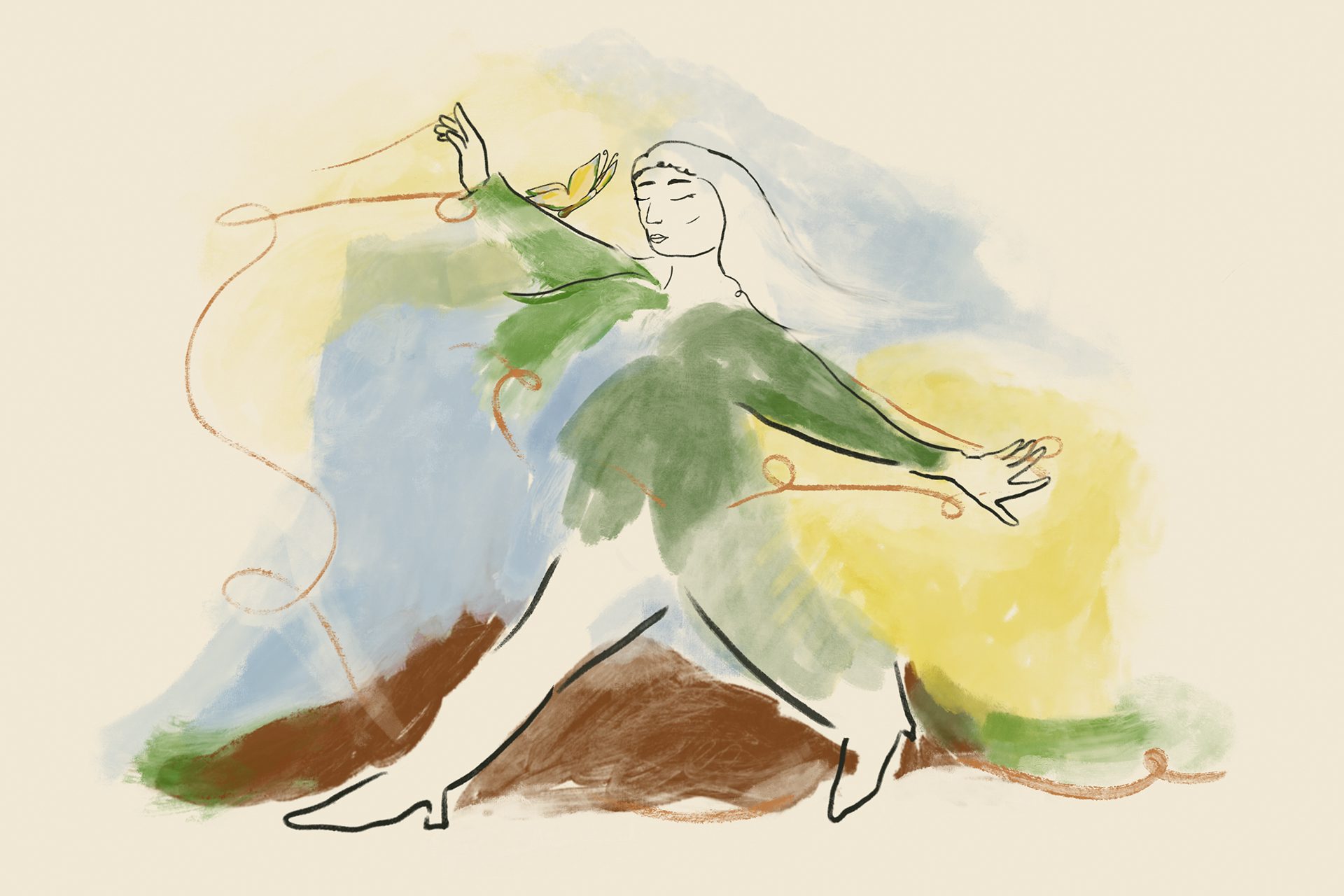 Ilustración de Anna Mielniczuk para Borderless Magazine
Ilustración de Anna Mielniczuk para Borderless Magazine Maryam y otras 147 estudiantes esperaron en el aeropuerto de Kabul durante días antes de poder escapar de Afganistán.
En Afganistán, Maryam* era estudiante universitaria en Universidad de Kabul que competía en una liga deportiva nacional. Aunque su familia quería que fuera médico -una profesión relativamente segura para las mujeres en Afganistán-, Maryam tenía otras ambiciones.
Los atentados suicidas en su campus eran constantes. Maryam tenía planes de trasladarse a una universidad de Bangladesh para continuar sus estudios de forma segura. Pero cuando el gobierno afgano cayó en manos de los talibanes en agosto de 2021, ella y otras 147 estudiantes fueron evacuadas del país con la ayuda de funcionarios universitarios.
Noticias que ponen el poder en el punto de mira y a las comunidades en el centro.
Suscríbase a nuestro boletín gratuito y reciba actualizaciones dos veces por semana.
Maryam vive ahora en Chicago, donde ella y otras nueve mujeres afganas prosiguen sus estudios en la Universidad DePaul y construyendo poco a poco nuevas vidas. Actualmente toma clases de inglés y empezará a cursar estudios universitarios este otoño.
Borderless Magazine habló con Maryam sobre cómo escapó de Afganistán y su vida como estudiante e inmigrante en Estados Unidos.
*Borderless utiliza un seudónimo debido al caso de asilo de Maryam y a las continuas amenazas a la seguridad de su familia.
En los últimos años, la situación de la seguridad en Afganistán se ha ido deteriorando. Las escuelas y universidades eran constantemente objeto de ataques suicidas y atentados con bomba. En noviembre de 2020, mientras estudiaba en la Universidad de Kabul, un atentado suicida en el campus mató a 22 estudiantes e hirió a otros 40.. En la zona de Dashte Barchi, al oeste de Kabul, donde yo vivía, todos los días se producían atentados suicidas en escuelas, universidades, cursos de inglés, gimnasios deportivos e incluso en maternidades. No teníamos seguridad en ningún sitio. Esta situación afectó a mi alma y a mi espíritu. Me desanimé con mis estudios y me sentía insegura al ir al campus.
Entonces, animado por mis padres, decidí solicitar una beca fuera de Afganistán. Un año antes del colapso de Kabul, solicité estudiar en la Universidad Asiática para Mujeres de Bangladeshy me aceptaron. Sentí como si mi alma reviviera.
La universidad estaba preparando el traslado de 148 mujeres de Afganistán para estudiar en Bangladesh. Pero con la caída del gobierno afgano en manos de los talibanes, todos los planes se desbarataron. Me sentí desolada y pensé que todo había terminado. Pero las autoridades universitarias no dejaron de intentarlo. Estábamos pendientes de nuestros teléfonos móviles en busca de noticias prometedoras. Finalmente, recibimos el mensaje de que nos trasladarían a Bangladesh el 25 de agosto.
Más información
Los funcionarios de la universidad se encargaron de transportar a todos los estudiantes en siete autobuses, y nos dirigimos al aeropuerto de Kabul. Allí esperamos en el autobús durante 32 horas. Detrás de las puertas del aeropuerto se había congregado una gran multitud de personas que querían huir de Afganistán. Los talibanes patrullaban las carreteras; querían controlarnos incluso en los últimos momentos de nuestra huida, lo cual era ridículo. Habían dado instrucciones a los conductores de autobús para que las chicas no pudieran utilizar sus teléfonos móviles. Me escondí bajo los asientos del autobús para llamar a mi familia, para que los talibanes no vieran la luz de mi móvil.
Mientras esperábamos en aquel caluroso clima para entrar en el aeropuerto de Kabul, se produjo un sangriento atentado suicida a poca distancia de nosotros. En el atentado del 26 de agosto murieron 182 personas, entre ellas 13 soldados estadounidenses.
Las autoridades universitarias no cesaban de hacer llamadas para encontrar una forma de evacuarnos. Por fin, el 28 de agosto pudimos entrar en el aeropuerto. En lugar de Bangladesh, acabamos en Estados Unidos. Pasamos más de dos meses en Fort McCoy en Wisconsin. Mientras estábamos en el campamento, el vicerrector de la Universidad Asiática para Mujeres se puso en contacto con varias universidades estadounidenses y nos remitió a ellas. Fue un acto verdaderamente humano, y se lo agradezco de todo corazón. Otras nueve estudiantes y yo estamos ahora matriculadas en la Universidad DePaul de Chicago.
”"No teníamos seguridad en ningún sitio. Esta situación afectó a mi alma y a mi espíritu. Me desanimé con mis estudios y me sentía insegura yendo al campus".
Maryam, sobre la situación de seguridad en la Universidad de Kabul
Actualmente estoy tomando clases de inglés aquí, y empezaré cursos de licenciatura este otoño. Estoy muy contenta aquí. Los estadounidenses me apoyan mucho y mis profesores son muy amables.
Este es un país donde no se juzga a los seres humanos por su identidad, raza, color, lengua y vestimenta. Hombres y mujeres tienen los mismos derechos. Vestirse es una cuestión completamente personal y no tiene nada que ver con los demás. En Afganistán, los hombres consideran que es su derecho decidir o hacer comentarios sobre la vestimenta de las mujeres. De jovencita, nunca pude elegir un vestido propio y llevarlo en público. Si hubiera llevado lo que llevo ahora en Estados Unidos, habría sido acosada por los hombres de la comunidad.
Aquí siento realmente libertad e independencia. No quiero volver a Afganistán bajo el régimen talibán, y me gustaría que mi familia estuviera aquí conmigo para poder vivir y disfrutar juntos de esta sociedad humana.
Esta serie ha sido posible gracias al apoyo del Crossroads Fund y PEN America. Esta serie está disponible en inglés, español y persa dari. Si desea volver a publicar esta historia, envíe un correo electrónico a [email protected].

